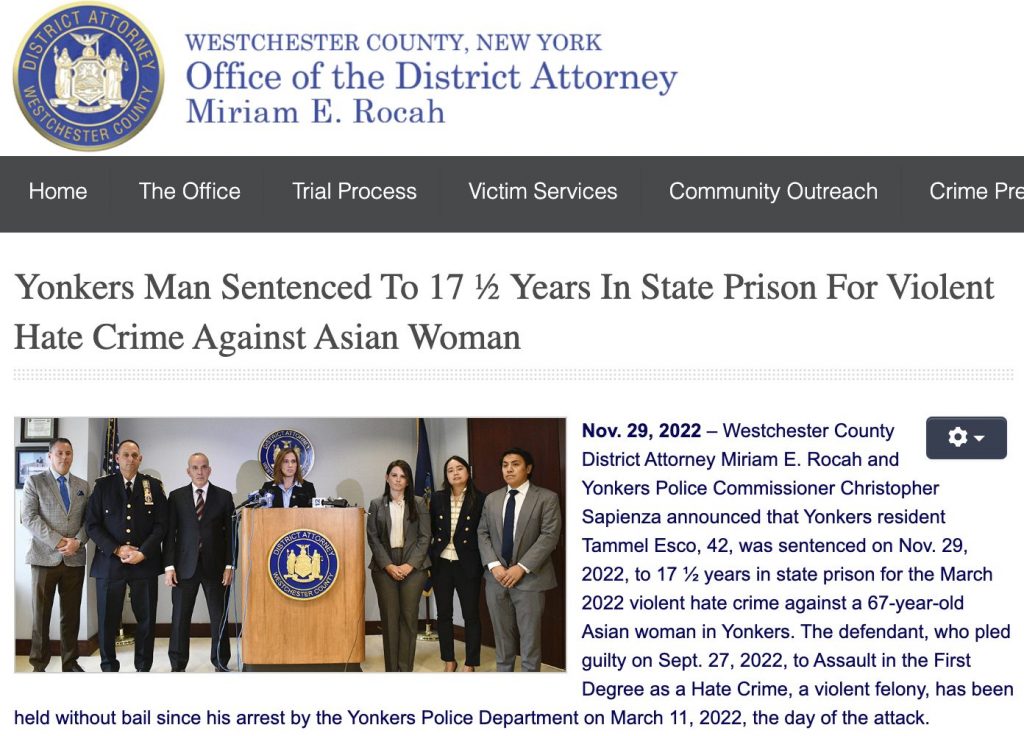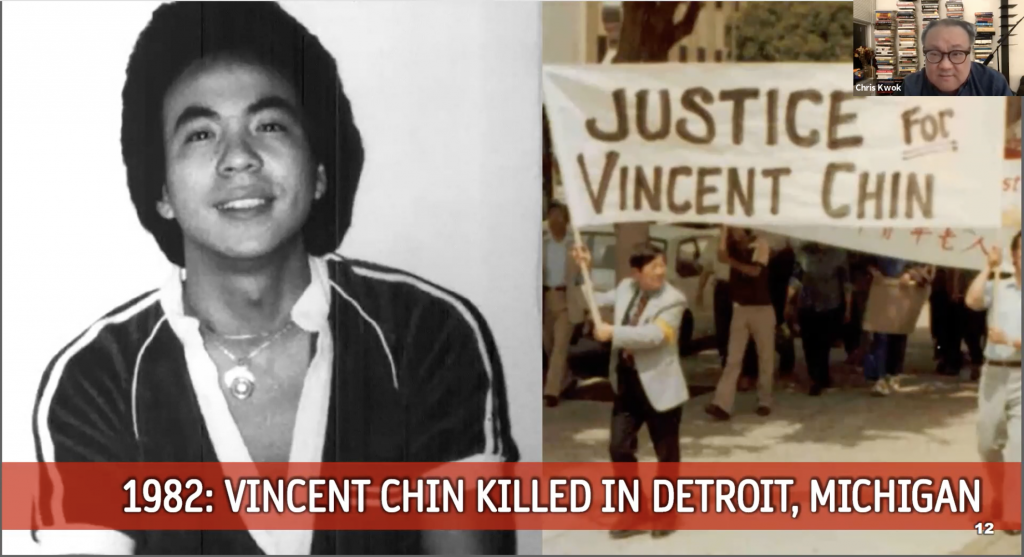
On February 26, 2025, I attended a screening at New York Law School of Voices Against Anti-Asian Hate, a documentary co-produced by the Asian American Bar Association of New York (AABANY) and Asian American Law Fund of New York (AALFNY), that captures the raw and painful experiences of those directly impacted by anti-Asian violence.
The documentary featured survivors, their families, and community supporters, including Justin Go, father of Michelle Go; Sungkon Lee, father of Christina Yuna Lee; and Jessica Zhao, former Vice President of the Forest Hills Asian Association, who lives in Queens where both Zhiwen Yan and GuiYing Ma were killed. Other featured individuals included Fulton Hou, Jane Kim, Noel Quintana, Patricia Zhang, and Michael Zhu, all of whom were traumatized by anti-Asian hate.
The documentary itself was heavy and haunting. The survivors, family members of those who lost their lives to anti-Asian hate, and dedicated community leaders recounted their experiences with a level of emotion that was both painful and necessary to witness. They were not just statistics or distant headlines—they were real people whose lives had been shattered by senseless violence. The randomness of the assault, the lack of accountability, and the feeling of helplessness resonated with the audience deeply. These anti-Asian hate experiences revealed a horrifying reality: victims of anti-Asian hate crimes are left to navigate their trauma alone, with little support from law enforcement or the legal system.
The wave of anti-Asian attacks has infiltrated every aspect of daily life, striking in places that are meant to be safe and routine. These attacks have occurred on subways, buses, and even in car mechanic shops, spaces we often consider neutral. Delivery workers making their rounds, carrying out everyday tasks like dropping off takeout, have also become targets. Attacks have taken place while simply sweeping a sidewalk near our homes, a place that should symbolize peace and security. Walking down the street or even being followed into one’s home has become an all too familiar fear for many in the community. These are not isolated incidents; this can happen to any of us. Everyone performs these activities, commuting, working, and walking in their neighborhoods, making it clear that no one is immune to the impact of this growing violence. It is an urgent wake-up call that these attacks are not just random outliers; they are attacks on the everyday lives of real people.
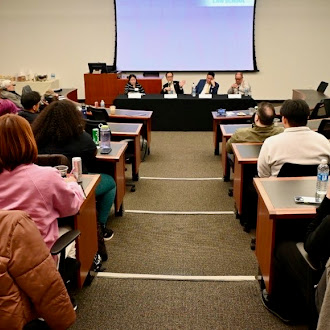
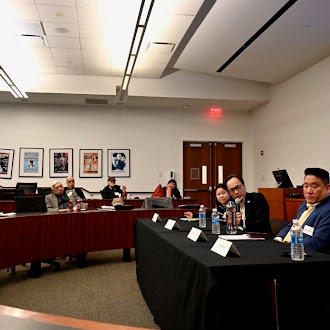
An insightful panel discussion followed after the screening, featuring Yang Chen, Executive Director of AABANY, Chris Kwok, Community Activist/JAMS Mediator and Arbitrator, and Anthony K.C. Fong, General Counsel at Victoria’s Transportation Co., Inc. in New York and an alum of New York Law School. Their discussion explored and analyzed hate crimes, bail reform, and the broader systemic issues that continue to fuel anti-Asian hatred and violence.
The panel discussion provided a necessary legal and societal framework for understanding these anti-Asian hate incidents. One of the key topics was bail reform and its unintended consequences. While bail reform aims to prevent economic discrimination against low-income defendants, it has also led to a revolving door system where perpetrators of hate crimes are often released back onto the streets. While reforming the justice system is essential, it may be failing communities of color, including Asian Americans. Yang Chen spoke about the difficulty in prosecuting hate crimes, particularly the high burden of proof required to establish racial motivation. Without clear-cut evidence such as an explicit racial slur or symbol, many violent attacks are not categorized as hate crimes, allowing perpetrators to receive lighter sentences. This legal hurdle is a significant roadblock in addressing anti-Asian violence meaningfully.
The panel highlighted the importance of community engagement in fighting anti-Asian hate. They emphasized that legal advocacy alone isn’t enough; we need education and community solidarity. The Asian American community cannot afford to remain passive. We need to actively participate in conversations about criminal justice reform, public safety and political representation.
The documentary and panel discussion made clear that the struggle against racism and xenophobia is far from over. It is easy to assume that awareness alone will lead to change, but awareness without action is meaningless. Watching Voices Against Anti-Asian Hate was a reminder of why advocacy and vigilance are crucial. The trauma inflicted on our communities does not disappear once the news cycle moves on. Hearing the pain of the survivors and the frustration from legal experts reinforced my belief that real change requires sustained effort.
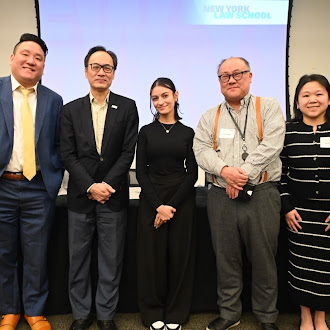
I left the screening with a mix of anger, sadness, and determination. The documentary and panel reaffirmed that we cannot afford to be complacent. Whether it’s supporting organizations like AABANY, helping survivors navigate the complexities of the legal system, or simply checking in on our elders and neighbors, we all have a role to play.
In dedication to the memory of Michelle Go, Christina Yuna Lee, and all other victims of anti-Asian violence, we must continue to support initiatives such as the Anti-Asian Violence Task Force and their important projects: HEART (Hate Eradication Active Response Team) supporting victims of anti-Asian hate crimes, court watching, Anti-Asian hate crimes data collection, and the Rising Tide and Endless Tide reports examining anti-Asian hate and violence. We must also engage in ongoing community outreach and advocacy. The fight against anti-Asian hate is not just about reacting to tragedy; it’s about building a future where our communities no longer have to live in fear. The questions we need to ask ourselves now are: What are we going to do about it? How do we make sure that the level of hate and violence experienced by the AAPI community in the last few years does not happen again and does not afflict other vulnerable populations?




